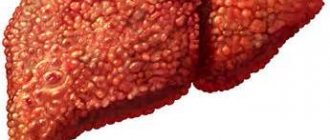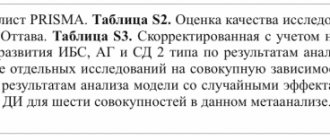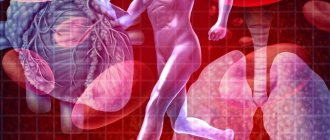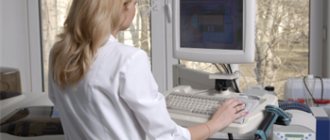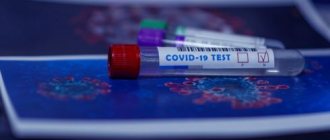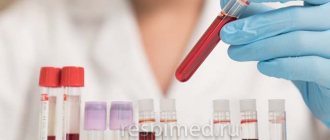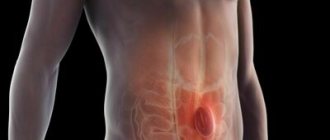The rheumatological complex is a comprehensive laboratory cycle of research to identify rheumatic diseases. It helps to determine the causes of inflammation in joints, connective tissues of organs and systems, and to choose tactics for subsequent examination of the body and treatment. Tests are prescribed for patients of different ages with symptoms of rheumatological pathologies. These include:
- joint and muscle pain;
- associated fatigue, weakness;
- swelling, swelling, joint deformation;
- elevated temperature;
- painful sensations when pressing, bending;
- elevated levels of C-reactive protein or ESR in the blood;
- redness, dry skin.
Similar symptoms are characteristic of various diseases: liver, thyroid gland. Therefore, for an accurate diagnosis, patients undergo a comprehensive examination. It includes examination, collection of complaints, x-rays, in many cases MRI, CT, ultrasound and, of course, a set of specific tests to identify pathology. The rheumatological complex is prescribed for the diagnosis of rheumatoid, reactive arthritis, joint diseases, rheumatism, systemic lupus erythematosus, as well as osteoarthritis, vasculitis and other diseases of the autoimmune spectrum. Venous blood is taken for the study. The research period is 10 days.
What does the rheumatological complex include?
- General clinical blood test with leukocyte formula, determination of hemoglobin, ESR, red blood cells. It is necessary to detect inflammatory processes and infections.
- Antinuclear (antinuclear) antibodies (HEp2 ANA) are a sensitive marker for identifying autoimmune pathologies that primarily affect connective tissues. Helps diagnose Sjogren's syndrome, scleroderma, lupus erythematosus, polymyositis.
- Antibodies to citrullinated vimentin (MCV) - allow the detection of rheumatoid arthritis even several years before the first clinical signs appear.
- Antibodies to citrullinated peptide - analysis for A-CCP is needed to diagnose rheumatoid arthritis and assess the risk of developing joint destruction in patients.
- Albumin - elevated levels may indicate systemic lupus erythematosus or rheumatoid arthritis.
- Total protein is the main indicator of amino acid metabolism. The analysis is carried out in conjunction with other studies.
- Uric acid – increases with gout, joint inflammation, arthritis.
- Antistreptolysin-O (ASLO) - an increase in indicators indicates ongoing infectious and inflammatory processes, carriage of streptococcus, the development of autoimmune lesions, rheumatism, arthritis.
- C-reactive protein (CRP) – confirms the presence of autoimmune pathologies and shows the degree of inflammation in rheumatic lesions.
- Rheumatoid factor (RF) - analysis for RF is necessary for the diagnosis of autoimmune diseases. The IgM factor increases with vasculitis, gout, lupus, rheumatoid arthritis, connective tissue lesions, and joint pathologies. A high concentration of IgA and IgG of 80% is found in rheumatoid arthritis.
Profile No. 15, Revmotests
Home / For clients / Comprehensive studies / The set of tests included in the package collectively costs 5% - 15% less than each test separately. / Profile No. 15, Rheumatic tests
Article rating: 4.78 (50)
Rheumatic diseases include more than 120 nosological forms of various origins, mainly systemic, less often local, the leading manifestation of which is persistent damage to the musculoskeletal system: joints, muscles, ligaments, tendons and bones.
- rheumatism is an inflammatory disease primarily affecting the heart;
- systemic vasculitis - inflammatory diseases with predominant damage to blood vessels (pulmonary-renal syndrome, aortoarteritis, temporal arteritis, periarteritis nodosa, microscopic polyarteritis, thromboangiitis obliterans, Wegener's granulomatosis, hemorrhagic vasculitis);
- diffuse connective tissue diseases - immunoinflammatory diseases with autoimmune damage to the connective tissue of various body systems (systemic scleroderma, systemic lupus erythematosus, dermatomyositis, Sjogren's disease, Sharpe's syndrome);
- joint diseases - inflammatory diseases with predominant damage to the joints (ankylosing spondylitis, osteoarthritis, osteoporosis, arthritis (reactive, rheumatoid, psoriatic), gout).
The unifying factor for all rheumatological diseases is inflammatory processes and weakened immunity.
Causes of rheumatic diseases.
Unfortunately, medicine cannot yet give a clear answer to the question of the causes of most rheumatic diseases. Theoretical calculations and hypotheses are present in abundance, but most experts believe that the reason for everything is the genotype that the patient inherits from his ancestors. Predisposition to the disease, as well as the influence of provoking factors, leads to an immunological shift, a disorder (the work of one or more existing genes is triggered) as a result of which autoimmune inflammation begins to develop. Provoking factors are: infections and intoxications, nervous shock and hormonal shifts, as well as excessive exposure to ultraviolet rays of the sun (tanning). Manifestations of rheumatological pathologies are typical for patients of any age group, but they mainly occur in mature people aged 45 years and older. So, for example, rheumatic diseases such as osteoporosis, osteoarthritis and polymyalgia rheumatica rarely occur in young people. Although, against the background of traumatic joint injuries and intense physical activity, arthrosis is often observed in young people. This trend is especially pronounced among athletes and extreme sports enthusiasts. Similarly, women of childbearing age who have undergone surgery for diseases of the uterus or ovaries (who have not received replacement therapy after the removal of these organs) are predisposed to osteoporosis due to hormonal imbalance. Some rheumatological diseases may be more common in certain genders. Thus, systemic (autoimmune) diseases, rheumatoid arthritis, vasculitis and polymyalgia rheumatica are mostly female diseases, and psoriatic arthritis, gout and ankylosing spondylitis (ankylosing spondylitis) are more typical for the stronger sex.
Symptoms of rheumatic diseases.
There are a number of signs, the constant presence (for 1-2 weeks) of which urgently requires consultation with a rheumatologist:
- pain in the joints (morning stiffness goes away only after a half-hour warm-up in order to achieve comfortable, pain-free movement);
- stiffness in the back (especially in the lumbosacral region in men);
- increased body temperature observed over several days;
- swelling or swelling in the joint area, changes in their configuration due to changes in bone and cartilage tissue;
- feeling when touched that the joint is warm compared to the surrounding tissues (even hot);
- weakness in the limbs, aching joints, muscle pain;
- nodular formations on the skin from pinkish to purple-bluish;
- recent urogenital or acute intestinal infection, persistent redness of the forehead and cheeks;
- the appearance of areas on the skin with a change in appearance and impaired sensitivity;
- bone fractures, disturbances in their growth;
- the appearance of stretch marks on the skin (if there has been no pregnancy or previous weight loss);
- severe headaches that have a clear localization (especially in combination with weakness, heavy sweating or low-grade fever);
- any combination of the above symptoms or each of them resulting from the listed precipitating factors;
- spontaneous abortions, miscarriage and other obstetric pathologies;
- the appearance of similar symptoms or the presence of rheumatic diseases in blood relatives.
Over the past decades, rheumatology has made great strides forward. Methods of treatment and diagnosis of rheumatic diseases have undergone major changes due to the rapid development of physics, chemistry and biology. Recent advances in rheumatology are closely related to the achievements of immunology, which studies the functioning of the human immune system, since many rheumatic diseases are based on immune malfunctions. Modern immunological diagnostics, which make it possible to detect antibodies corresponding to a specific pathology, are a serious aid in making a diagnosis for a rheumatologist.
The profile includes tests for the diagnosis of rheumatic and autoimmune diseases, and also allows you to identify and evaluate the severity of the inflammatory process.
- SRB
- RF (rheumatoid factor)
- uric acid
- antistreptolysin-O
- antinuclear factor
- IgG antibodies to extractable nuclear antigens (ENA)
- antibodies to cyclic citrullinated peptide (ACCP)
- chlamydia trachomatis (IgG antibodies to heat shock protein HSP 60)
Profile cost:
4811 rub.
Execution time: 1-11 days
Preparing for analysis
Note:
Blood sampling for testing is paid additionally. The cost of taking blood is 110 rubles.
© 2013 - 2021 copyright holder LLC "TIAS LOTUS"
History and philosophy of the company Personal data processing policy For citizens with disabilities Preparation for analyzes Phone numbers of higher-level organizations State guarantee program Payment methods Help for the Federal Tax Service Contacts Our partners
Gemohelp mobile application
8-800-100-08-05
Call if you have any questions
By using the website www.gemohelp.ru, you agree to the use of cookies
I confirm
More details
Select city:
- Arzamas
- Balakhna
- Bogorodsk
- Bor
- Vacha
- Vyksa
- Dzerzhinsk
- Trans-Volga region
- Kstovo
- Kulebaki
- Lukoyanov
- Lyskovo
- Moore
- Navashino
- Nizhny Novgorod
- Pavlovo
- Sarov
- Semenov
- Sosnovskoe
- Cheboksary
- Chkalovsk
Confirm
How to prepare for a rheumatic test?
As a preparation, in order to get reliable results, you must stop taking medications for two weeks. If treatment cannot be interrupted, the card indicates what medications the patient was taking. It is recommended to draw blood on an empty stomach in the morning. Before taking the test, do not eat for at least 8 hours.
The day before the test, exclude:
- eating heavy, fried foods, fatty foods;
- physical exercise;
- stress, anxiety;
- alcohol consumption.
In the morning before the tests, you should not smoke, drink drinks, tea, or coffee. Only water is allowed. If these guidelines are not followed, the results may be inaccurate. In this case, the patient may be prescribed a repeat study.
Analysis results
The study of biochemical material makes it possible to recognize the type of irritant, inflammatory reactions, their localization, and the dynamics of the disease. A rheumatologist should decipher the test result.
The norm of basic indicators for an adult is:
- Total protein – from 65 to 85 g/l (taking into account the patient’s age).
- Albumin – 35-50 g/l.
- Rheumatoid factor – 0-15 IU/ml.
- Antistreptolysin-O – 0-200 IU/ml.
- C-reactive protein – from 0 to 5 mg/l.
- Antinuclear factor – titer 1:160.
- Antibodies to citrullinated peptide – 0-5 U/ml.
- Uric acid – from 200 to 300 µmol/l in women, 250-400 µmol/l in men.
- Antibodies to citrullinated vimentin – up to 20 U/ml.
What is included in rheumatic tests
Rheumatic blood tests are a general diagnostic set of examinations. Tests include the diagnosis of rheumatic diseases, identify inflammatory processes or their absence, and also help determine the main pathogen (bacteria, viruses). During the procedure, several tests are done.
| Name | Description | Indicator norm |
| Antistreptolysin-O-ASLO (marker of streptococcal infection) | An indicator of the presence of antibodies to streptococcal toxin. They appear in inflammatory diseases such as tonsillitis, erysipelas, scarlet fever. An antistreptolysin test helps distinguish rheumatism from rheumatoid arthritis. | 0-200 units/ml |
| Rheumatoid factor (RF | An indicator of the protein content that forms antibodies that act on viruses and bacteria. | 14 IU/ml |
| C-reactive protein (CRP) | An indicator of the inflammatory process in the acute phase, causing damage to body tissue. A test is required if chronic infectious diseases are suspected. Its results help the doctor form an opinion about the increase or decrease in the activity of the rheumatic disease. | 005 mg/l |
| *The table shows the tests performed during a rheumatic test, describes how they influence the diagnosis, and indicates their optimal indicators for a healthy person. | ||
Preparing for the rheumatoid test
- It is recommended to carry out immunological research in the morning from 8 to 11 o'clock on an empty stomach. You can only drink water.
- Before the test, you should not eat for at least 8 hours.
- Preparation for the analysis involves stopping (if possible) all medications 1-2 weeks before the procedure. If it is impossible to cancel, it is necessary to inform the specialist what medications the patient is taking and in what doses.
- On the eve of the procedure, exclude fried, smoked and fatty foods from the diet, avoid smoking and drinking alcohol.
Venous blood is taken for laboratory tests. For the fence, the specialist uses an individual tool. To analyze the rheumatic factor, the collected blood is passed through a special centrifuge, and the separated serum is used for research.
Rheumatic tests in Moscow
The ON CLINIC medical center in Moscow has its own certified laboratory. The clinic guarantees high accuracy of laboratory tests and quick availability of test results. You can receive them the very next day. This will allow you to consult a rheumatologist without wasting time.
You should not postpone a comprehensive examination until later, because advanced forms of the disease significantly reduce the quality of life. If you have symptoms of pain and swelling in the joints, general malaise, stiffness and painful movements, undergo diagnostics at the ON CLINIC center and begin treatment.
